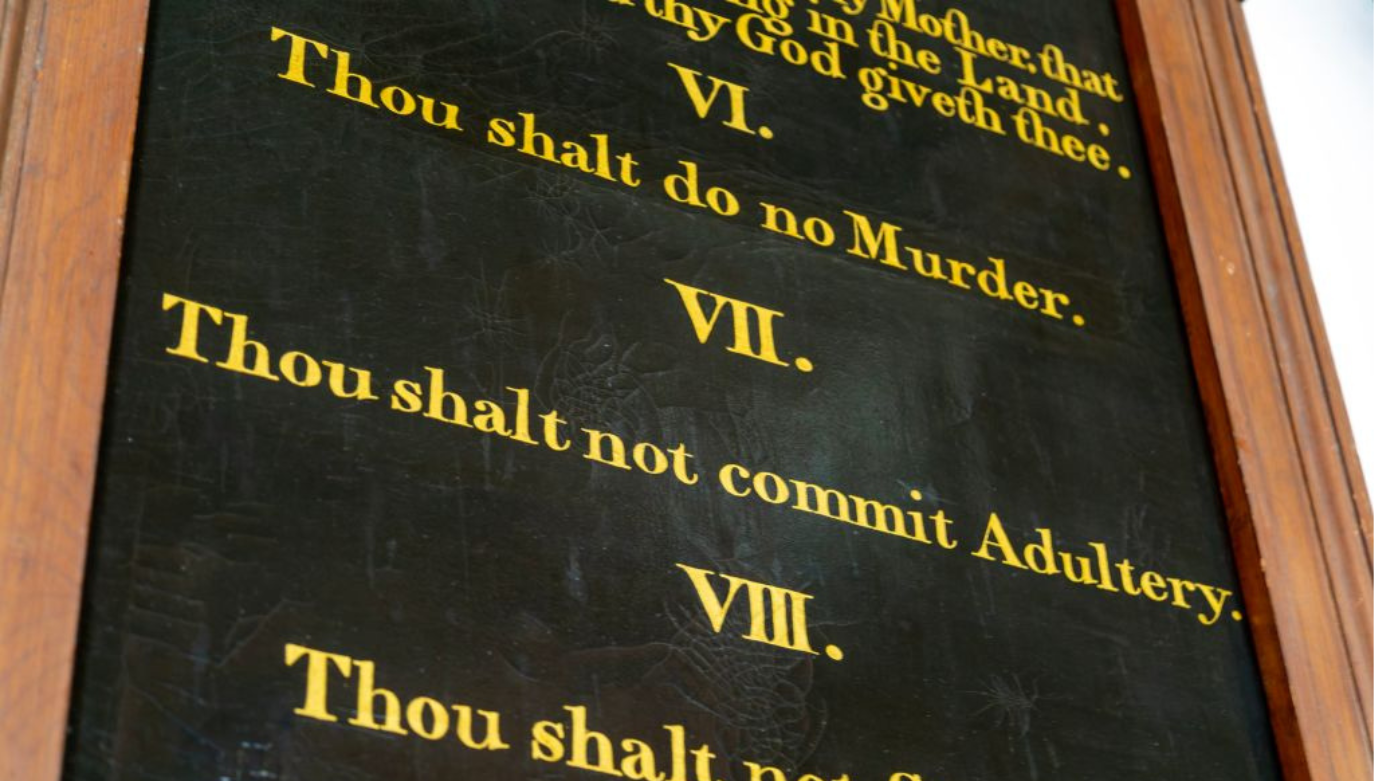Louisiana becomes the first state to mandate the display of the Ten Commandments in all public school classrooms. Governor Jeff Landry signed the bill as part of a broader conservative push under GOP legislation through new leadership.
RELATED STORIES: North Carolina High School Teacher Under Fire After Recreating Segregation In Classroom For Black History Month
The new law requires that each classroom, from kindergarten through state-funded universities, feature a poster-sized display of the Ten Commandments in a “large, easily readable font.” Accompanying these displays will be a four-paragraph “content statement” explaining the historical significance of the Ten Commandments in American public education spanning almost three centuries. According to the Associated Press, the law mandates that the posters be installed by the beginning of 2025.
Critics have argued that the law is unconstitutional, and supporters claim the display serves a dual purpose: religious and historical. The Ten Commandments are “foundational documents of our state and national government.” Since the law requires that no state funds be used for this purpose, donations will fund the posters.
RELATED STORIES: Shocking Video Shows Student Throw A Chair At Teacher’s Head During A Classroom Fight
Additionally, the law provides for an optional display of other historical documents in K-12 schools, such as the Mayflower Compact, the Declaration of Independence, and the Northwest Ordinance, so students develop an enriching understanding of American foundational texts. Major civil rights organizations, including the American Civil Liberties Union, Americans United for Separation of Church and State, and the Freedom from Religion Foundation, announced plans to challenge the law. They argued it could alienate students of diverse beliefs, threatening the neutrality of public education.
This law’s opponents emphasize the variances in the text of the Ten Commandments across different religious denominations, criticizing the government’s involvement in spiritual matters. They highlight past legal precedents, such as a 1980 Supreme Court ruling against a similar law in Kentucky, which was deemed unconstitutional for violating the Establishment Clause of the U.S. Constitution.

